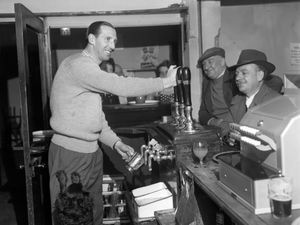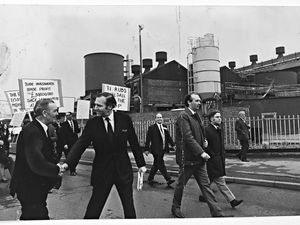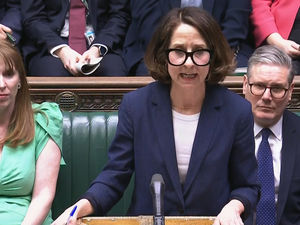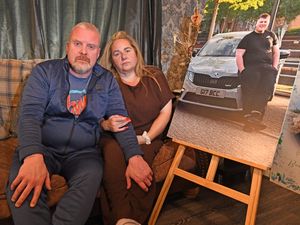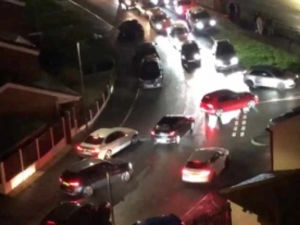Will the West Midlands Mayor bring in the cash or just cash in?
What is the point of having a West Midlands Mayor?
It is a question that has been asked regularly in the run up to the May 4 election, with many people in the region either not interested in or vehemently against the very idea.
Indeed it was the issue that most grabbed the attention of Express & Star readers who sent in questions prior to the first major mayoral hustings at the Black Country Living Museum last night. “Is the role of Mayor, which is being imposed in the people of the West Midlands, just another chance for a mate of those in Westminster to be on the gravy train?” asked Mike Thompson from Wordsley, echoing the opinion of several others.
It is a fair question, and whoever is elected as West Midlands Mayor will need to hit the ground running to persuade the public that the whole idea is not just a waste of time. However, there is a danger that the position is being written off before it has had the chance to succeed.
The fact that the West Midlands has been grossly underfunded – and at times ignored – by central government when it comes to big investment projects is indisputable.
Ask our local legislators if they believe the region has had its fair share over the last 30 years and the answer from most of them will be a resounding ‘no’, regardless of their political persuasion.
There is a long held view that the West Midlands has functioned as a group of loosely connected local authorities, without the necessary cohesion to oversee large infrastructure developments that can benefit the entire region.
While it is important to do what is best for Walsall, Wolverhampton, Dudley and Sandwell, deeply entrenched problems such as inadequate transport systems and housing shortages cannot be fixed using a micro approach.
Attempting to push the region forward in such a disconnected fashion has not worked for decades. With the West Midlands facing an unprecedented population explosion, there is a need for more jobs, more houses and a better transport network.
It is time for a new approach, and perhaps a mayor can bring the combination of cohesion and drive that is required.
There is evidence from America to suggest that if done properly, the mayoral role can bring huge benefits to the region. Many New Yorkers look back fondly on Rudy Giuliani’s reign as city mayor from 1994-2001. His main achievement was a clampdown on crime, and his successes undoubtedly influenced Tony Blair’s decision to unleash Britain’s first wave of metro mayors in the early 2000s.
The mayoral model is in the US is broadly similar to that which has been proposed for the West Midlands, with the mayor tasked with bringing together public, private and civic bodies to meet regional challenges.
Louisville, Kentucky is a case in point. With a population of 750,000 it is far smaller than the West Midlands Combined Authority area, but it shares many other things in common.
Until the last decade it struggled to achieve inclusive economic growth, meaning the city was a place where the poorest citizens were often left behind. Under Mayor Greg Fischer Louisville revamped its education system, bringing a number of organisations together to launch a new lifelong learning scheme.
Although only in its fourth year, it has already been credited with sparkling higher rates of college degree attainment and an increase in the average wage in the city.
Over in Los Angeles Mayor Eric Garcetti
brought together private companies to work together and restore the city’s LAX as a world class airport.
He also slashed through miles of red tape at City Hall, saving millions of dollars by making Los Angeles more streamlined and efficient. Garcetti’s mantra is that mayors have the ability to fix the things that are broken, rather than struggling on and laying the blame for problems elsewhere. There is also a home grown precedent. Nineteenth century British mayors, such as Birmingham’s Joseph Chamberlain, were credited with changing the face of our cities.The fundamentals of getting a region working are the same the world over.
But three things are key if the West Midlands is to successfully move away from centralisation.
There needs to be money – and plenty of it. The current devolution deal of £36.5 million a year sounds grand enough, but on its own the funding will be nowhere near enough to pay for the type of schemes required to put the region on the front foot.
During his second term as London Mayor, Boris Johnson claimed he had a spending budget ‘far bigger’ than many Whitehall departments.
Equally as important is that the right person is in charge, and that he or she is given appropriate powers to implement genuine changes.
A Mayor without the ideas or ability to push them through will oversee another period of stagnation for the West Midlands.
Many of the issues facing the region will never be solved by Whitehall. Electing a Metro Mayor will at least give a glimmer of hope that the region can finally prosper.

